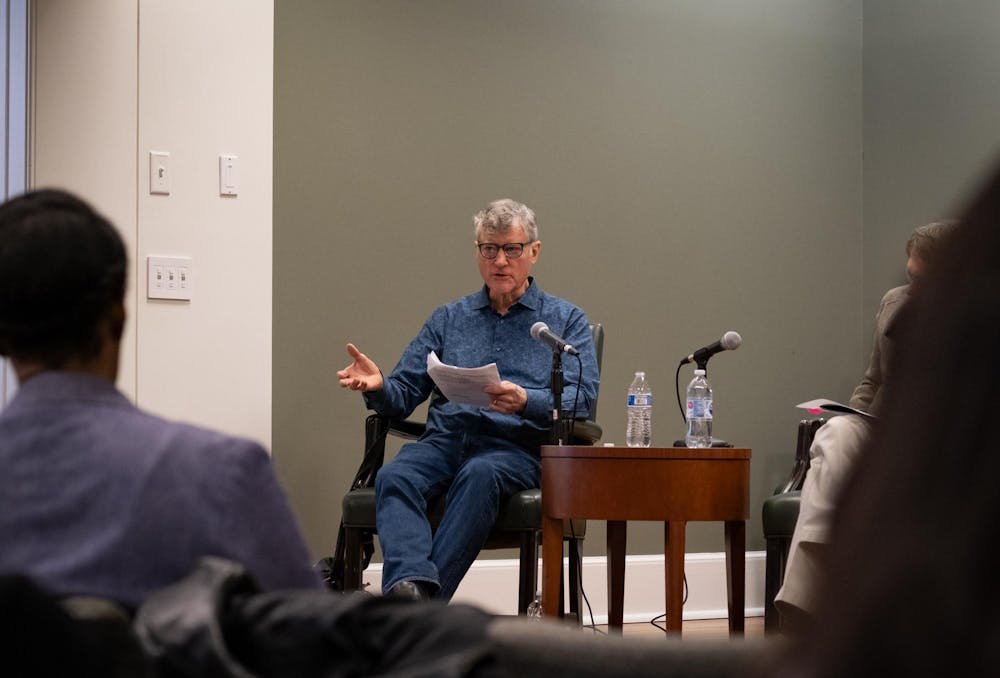In 1973, the founder of the Southern Oral History Program Jacquelyn Dowd Hall came to UNC to teach history and create the first oral history program in the South.
Fifty years later, the program has now conducted and archived more than 6,500 interviews to preserve Southern voices and stories across the region.
Over the weekend, UNC’s Center for the Study of the American South celebrated the SOHP’s 50th anniversary and the center’s 30th anniversary, at Wilson Library.
“Oral history is usually a democratic mode of doing history,” Hall said. “And it has enabled historians to really take their interest, their skills, their knowledge of history to the public in ways that are not easy to do.”
The archive of oral histories — interviews with individuals focused on events that occurred in the past — is housed in the Southern Historical Collection at Wilson Library and is becoming increasingly accessible to the community through the digitization of projects.
The "3050 event" celebrating the two anniversaries included meetings, panels and workshops for educators, students and the public.
SOHP field scholar and doctoral student in the Gillings School of Global Public Health, Sophie Toco-led an oral history workshop for educators on Friday. She taught the principles of oral history and led small-group interactive activities to inspire open conversations and a better understanding of the program.
“It just reminded me that there are so many people out there who are like-minded and doing great social justice work and reminding me of the tangible movements and things that can come out of oral history,” To said.
On Saturday, there were multiple panel discussions on the SOHP’s history, the various projects accomplished at the program and ways to give back and represent the community through oral history.



